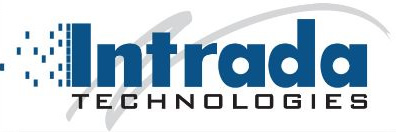Knowledge Base
Microsoft Predictions for 2025: What Business Owners Need to Know
OVERVIEWBy leveraging Microsoft's suite of products and solutions, businesses can anticipate a future that is more efficient, secure, and sustainable. From AI-driven features in Microsoft 365 to advanced cloud capabilities in Azure, the possibilities for growth and transformation are endless. The seamless integration of tools like Copilot, SharePoint, and Loop empowers collaboration and enhances communication within organizations. |
 |
As businesses navigate an increasing digital landscape, the role of technology continues to evolve at a rapid pace. One of the key players shaping the future of enterprise IT is Microsoft. With its vast suite of products—ranging from cloud computing and collaboration tools to AI solutions—Microsoft remains a crucial part of how companies operate.
As we look ahead to 2025, what can business owners expect from Microsoft? Let’s dive into the key trends and predictions that will shape the tech ecosystem in the coming years.
1. The Rise of AI and Automation in Microsoft Tools
AI has already begun transforming the way businesses operate, and Microsoft is at the forefront of this revolution. By 2025, we can expect AI-driven features to be fully integrated across Microsoft 365 products, including Word, Excel, and Teams.
For example, tools like Copilot in Microsoft Word and Excel have already demonstrated how AI can automate tasks, generate content, and offer insights. But by 2025, these tools will become far more sophisticated. Business owners can expect AI to assist with everything from decision-making to customer support, helping employees be more productive and free up time for higher-value work.
In addition, automation will be a key theme. Microsoft Power Automate will likely become even more intelligent, allowing businesses to automate processes across various applications, from CRM systems to supply chain management tools. This automation can streamline workflows, reduce errors, and increase efficiency.
The need for AI Governance is crucial
AI tools like Copilot offer significant power, but without proper governance, control might be lost. Customers are concerned about managing AI use effectively.
Governance will challenge both IT administrators and vendors. Organizations need governance strategies for AI tools like Copilot.
With 155 Copilot instances as of December 2023, IT administrators must develop governance plans.
Organizations should implement internal policies making sure admins control system usage and business operations.
2. Expanded Cloud Solutions and Hybrid Work Models
The cloud has long been a critical component of modern business operations, but its importance is set to grow even further in the coming years. Microsoft Azure, the company’s cloud computing platform, is expected to continue its rapid expansion, offering increasingly sophisticated tools for business owners looking to scale.
By 2025, Azure’s services will be more integrated with machine learning, edge computing, and Internet of Things (IoT) capabilities. For businesses, this means more opportunities for innovation, such as enhanced data analytics, personalized customer experiences, and smarter supply chain management. Companies that invest in Azure will be able to leverage these innovations to drive growth.
Additionally, Microsoft will continue to refine its hybrid work solutions. The shift to remote work is here to stay, and Microsoft is focusing on creating more seamless experiences for employees whether they’re in the office or working from home. With Teams becoming the central hub for collaboration, the platform will evolve with new features that promote hybrid work models, such as virtual office environments, advanced project management tools, and integrated HR systems.
SharePoint and Microsoft Loop may lead Collaboration Efforts
Microsoft Loop represents a development in collaborative technology. Loop will likely gain popularity throughout 2025. Microsoft Loop is a tool that takes advantage of OneNote for notetaking and combines it with the power of the 365-collaboration ecosystem. Loop also integrates with Copilot.
If Loop becomes a widely used collaboration tool, users will require training to utilize it effectively. Additionally, given that SharePoint Premium offers customization options and content branding, there is potential for Microsoft to create an integration between Loop and SharePoint Premium. Should these two applications be integrated, advancements in the Data Loss Prevention (DLP) field may emerge.
The combination of these programs could streamline communication and feedback processes within organizations.
3. Increased Focus on Security and Compliance
As cyber threats become more sophisticated, cybersecurity will remain a top priority for Microsoft. By 2025, Microsoft’s security offerings will likely be even more comprehensive, with enhanced protection built into every layer of its ecosystem.
Business owners can expect significant improvements in Microsoft Defender, which already provides enterprise-grade security across endpoints, identities, and cloud applications. In the coming years, these tools will offer real-time insights into threats and automatically suggest mitigation strategies.
Furthermore, Microsoft will continue to prioritize compliance with an increasing number of regulations. With the global shift toward stricter data privacy laws, business owners will rely on tools like Microsoft Compliance Manager to help them stay ahead of regulatory requirements. These tools will become more intuitive, allowing companies to easily assess and mitigate risk in real-time.
4. Sustainability and Green Tech Initiatives
Sustainability is no longer just a buzzword—it’s becoming a critical part of corporate strategy. Microsoft has already committed to becoming carbon negative by 2030, and by 2025, we can expect the company to enhance its environmental impact through its products and services.
Businesses will have access to more energy-efficient solutions through Azure and Microsoft 365, including advanced data center technologies that reduce energy consumption. Additionally, Microsoft’s cloud solutions will integrate more renewable energy sources, offering business owners an opportunity to align their IT operations with their sustainability goals.
Expect new AI-powered tools that help businesses track their carbon footprints and manage resources more efficiently. Microsoft’s sustainability tools will become crucial for companies looking to improve their environmental impact and adhere to evolving regulations around carbon emissions.
5. The Emergence of the Metaverse and Virtual Collaboration
The concept of the metaverse has gained traction, and while it’s still in its early stages, Microsoft is positioning itself as a leader in this space. By 2025, the metaverse will likely be a major area of growth for businesses, especially in terms of virtual collaboration and training.
Microsoft Mesh, the company’s mixed-reality platform, will likely become a key component for organizations seeking immersive collaboration experiences. This technology allows employees to interact in a virtual space, regardless of their physical location, offering new opportunities for remote training, meetings, and product development.
Business owners can expect new virtual tools that help employees and clients connect in ways that go beyond traditional video calls. Whether it’s through immersive virtual meetings or virtual product demos, the metaverse will change the way businesses interact with their employees, customers, and partners.
6. A Stronger Push for Democratizing Technology
Finally, one of the most exciting predictions for Microsoft in 2025 is the company’s continued commitment to democratizing technology. Microsoft’s goal is to make powerful tools accessible to businesses of all sizes, and the company will continue to prioritize inclusivity and affordability.
Whether through open-source initiatives, accessible cloud platforms, or training programs, Microsoft will ensure that even small and mid-sized businesses can take advantage of cutting-edge technology without the need for significant capital investment. The emphasis will be on providing business owners with the resources they need to scale quickly and efficiently while remaining competitive in the digital economy.
Conclusion: Preparing for 2025
As we approach 2025, Microsoft’s innovations will play a central role in shaping how businesses operate, collaborate, and scale. From AI and automation to enhanced security, hybrid work solutions, and sustainability, the future is full of opportunities for business owners to leverage technology for growth.
To stay ahead, it’s crucial for business leaders to start thinking strategically about these trends now. By embracing Microsoft’s evolving ecosystem, businesses can not only improve their operations but also create a more agile, secure, and sustainable future.
How Can Intrada Help?
At Intrada Technologies, we understand the critical role that Microsoft's innovations will play in shaping the future of business operations. As experts in leveraging technology for growth, we are here to help business owners think strategically about these trends and embrace Microsoft's evolving ecosystem. Let us guide you on the path to success in the ever-changing landscape of technology.
|
Contact Information: |
Hours of Operation: |
OUR FOCUS
Intrada Technologies is a full-service web development and network management company with a focus on creating ongoing, trusted partnerships with each of our clients.
We make sure our clients have what they require to run their businesses with maximum efficiency and reliability, as many of their needs are mission-critical.
Our unique, collaborative partnerships allow us to provide our clients with the assurance that we will be there when they need us.

